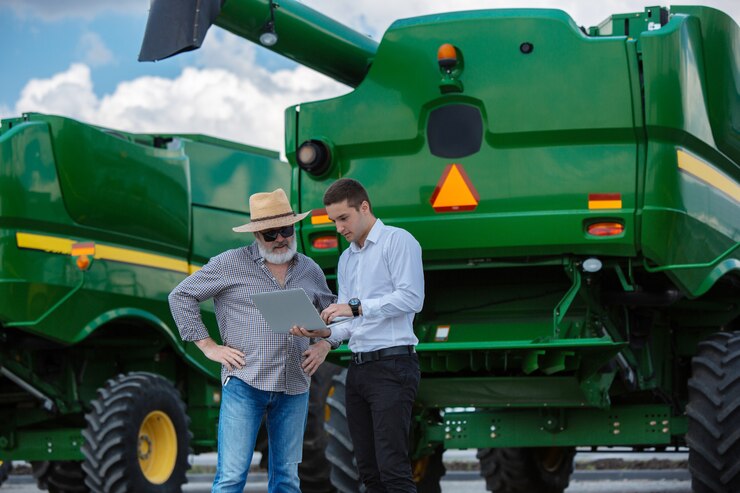In today’s fast-paced agricultural landscape, efficiency is key to staying competitive. As the demand for food continues to grow, farmers are turning to innovative machinery and technology to enhance productivity and streamline operations. This blog will explore some of the latest advancements in agricultural machinery and how they are transforming the farming industry.
The Shift Toward Modern Machinery
Traditional farming methods often rely on manual labor and basic equipment, which can be time-consuming and labor-intensive. However, advancements in technology have led to the development of modern agricultural machinery that can perform tasks more quickly and efficiently. This shift not only saves time but also reduces labor costs and increases overall productivity.
Key Innovations in Agricultural Machinery
- Precision Farming Tools: Precision agriculture involves using technology to monitor and manage field variability in crops. This includes GPS-guided equipment that allows farmers to plant, fertilize, and harvest with pinpoint accuracy. By applying inputs only where needed, farmers can reduce waste, optimize resource use, and ultimately improve crop yields.
- Automated Equipment: Automation is revolutionizing the way farmers operate. From autonomous tractors to robotic harvesters, automated machinery can perform tasks with minimal human intervention. This not only increases efficiency but also addresses the labor shortage in agriculture, allowing farmers to focus on strategic decision-making rather than manual labor.
- Eco-Friendly Solutions: As sustainability becomes a priority in agriculture, manufacturers are developing eco-friendly machinery that minimizes environmental impact. Electric tractors, for example, produce zero emissions and reduce reliance on fossil fuels. Additionally, machinery designed for reduced soil compaction and erosion helps protect the land for future generations.
- Data-Driven Decision Making: Modern agricultural machinery is equipped with advanced sensors and software that collect data on various factors, including soil moisture, nutrient levels, and crop health. This data can be analyzed to make informed decisions about irrigation, fertilization, and pest control, leading to improved efficiency and yield.
- Crop Monitoring Drones: Drones have become invaluable tools for farmers, providing aerial views of fields and real-time data on crop health. With the ability to cover large areas quickly, drones can identify issues such as pest infestations or nutrient deficiencies early on, allowing farmers to take corrective action before problems escalate.
Benefits of Investing in Modern Machinery
Investing in innovative agricultural machinery can lead to numerous benefits for farmers. These include:
- Increased Productivity: Modern machinery can perform tasks more quickly and accurately, leading to higher output and reduced downtime.
- Cost Savings: By optimizing resource use and reducing labor costs, farmers can achieve better profitability.
- Improved Crop Quality: Precision farming tools and data-driven decisions can enhance crop quality, resulting in better prices in the market.
- Sustainability: Eco-friendly solutions contribute to sustainable farming practices, helping to protect the environment for future generations.
Conclusion
The agricultural industry is undergoing a significant transformation thanks to innovations in machinery and technology. By embracing these advancements, farmers can enhance efficiency, reduce costs, and improve crop quality. As the world continues to demand more food, investing in modern agricultural machinery will be crucial for meeting this challenge and ensuring a sustainable future for farming.


